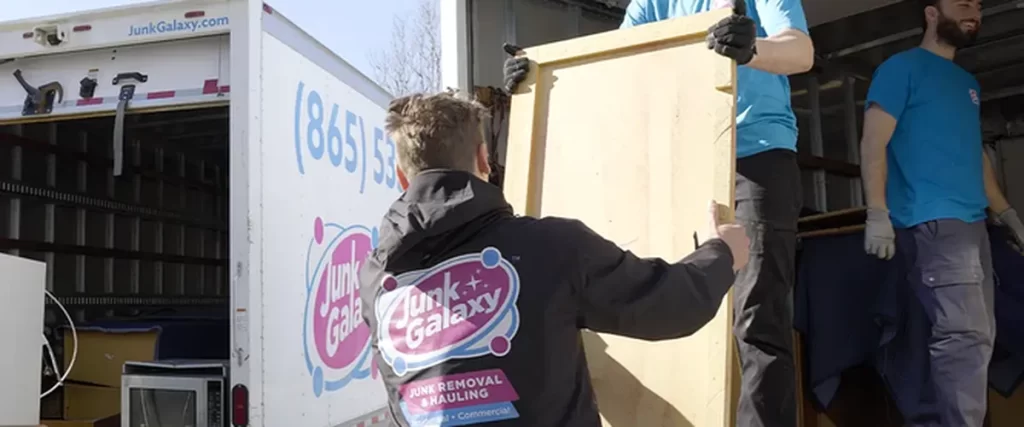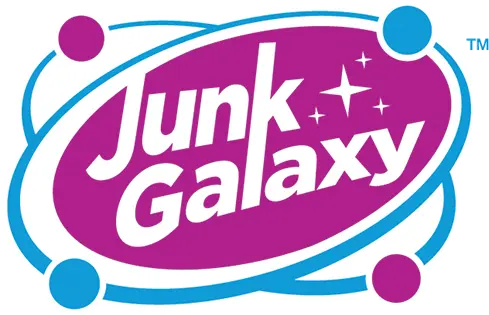Most people don’t realize how deeply their environment affects how they feel. A cluttered kitchen counter or messy closet may seem like a small inconvenience, but it can shape your thoughts, energy, and mood in surprising ways.
Research shows that clutter can influence focus, stress levels, and even emotional well-being. The good news is that the benefits of decluttering reach far beyond an organized home; they touch every part of your mental and physical health.

How Clutter Affects the Mind
Clutter competes for your attention. A study from Princeton University found that too many visual stimuli make it harder to process information efficiently. When your eyes see piles of mail, stacks of papers, or random objects scattered around, your brain has to work harder to sort what’s important and what isn’t.
That constant background noise creates mental stress. You might not even notice it happening, but the more things you see that are out of place, the harder it becomes to relax. Over time, that small irritation can build up into anxiety or fatigue.
A cluttered home often mirrors a cluttered mind. When your surroundings feel out of control, your thoughts can start to follow. Tackling even one small area helps restore a sense of control that immediately lowers tension.
The Emotional Weight of Clutter
Physical clutter often carries emotional weight. Items can be tied to memories, relationships, or unfinished plans. Letting go of them feels uncomfortable, especially if they belonged to a family member or remind you of a certain period in your life.
The act of sorting through those things forces reflection. You might feel sadness, guilt, or nostalgia. But moving through those emotions is part of the decluttering process. As you release what no longer serves you, you create space for more positive emotions to grow.
A Connecticut study found that people who described their homes as cluttered or full of “unfinished projects” had higher cortisol levels, a hormone linked to stress. Those who kept more organized spaces reported better mental health and greater satisfaction in daily life.
The Mental Health Benefits of Decluttering
The mental health benefits of decluttering are both immediate and long-term. The moment you clear a drawer, closet, or countertop, you feel a small lift. That relief grows as the space around you becomes more open and functional.
Decluttering helps:
- Reduce stress: A tidy environment signals safety and order, which naturally calms the nervous system.
- Improve focus: With fewer distractions, your brain can direct attention toward tasks or rest.
- Boost self-esteem: Each completed area brings a sense of accomplishment, reinforcing confidence and motivation.
- Enhance mood: Seeing a cleaner space stimulates positive emotions and satisfaction.
Even spending a few minutes clearing unnecessary items can ease the feeling of being overwhelmed. A cleaner home also contributes to a more calming environment, one that supports a relaxed mind.
The Physical Health Connection
Clutter doesn’t just affect your thoughts; it influences your body too.
When piles of stuff take over, cleaning becomes harder. Dust, allergens, and even mold can build up, negatively impacting physical health, especially for older adults or those with allergies. Regular decluttering keeps your home easier to clean and maintain.
There’s also the added benefit of movement. The act of sorting, lifting, and organizing items increases physical activity, even if it’s light. That small effort supports circulation, flexibility, and energy. Over time, maintaining a clutter-free home can lead to a more active and healthier lifestyle.
How Clutter Impacts Emotional Health
Living among excess stuff can quietly drain motivation. It creates a feeling of chaos that feeds negative emotions. Some people avoid hosting gatherings or inviting friends over because they feel embarrassed about their space. Others delay projects because finding what they need becomes too time-consuming.
Clutter has a way of making you feel stuck. By contrast, removing unwanted items and reclaiming your living space can bring an immediate emotional lift. A cleaner room offers visual relief and a sense of progress that encourages intentional living.
The process also teaches mindfulness. As you handle each item, you decide what truly adds value to your life and what doesn’t. That decision-making strengthens awareness and helps you make clearer choices elsewhere, such as how you spend time, what habits you keep, and which priorities you focus on.

The Science Behind Decluttering and Stress
The benefits of decluttering extend to measurable stress reduction. Studies link clutter to higher levels of cortisol, which influences fatigue and mood swings. A cluttered space sends signals of unfinished business to your brain, creating a visual to-do list that never seems to end.
Once the clutter is gone, the effect is immediate. You feel lighter, more capable, and more in control. That shift doesn’t just change the way you see your home; it changes how you see yourself.
People who declutter regularly often report better mental health, lower stress, and greater overall well-being. The environment becomes more peaceful, and even small tasks feel more manageable.
The Positive Impact on Relationships
A tidy environment can also strengthen connections. Sharing a home with family members or a friend means shared space, and clutter can easily become a source of tension. When each person contributes to staying organized, communication improves and conflicts lessen.
A clean space also creates room for togetherness. It becomes easier to cook, relax, or simply sit together when the surroundings feel open and calm. For couples or families, that sense of harmony can have a profound effect on emotional closeness.
How to Start the Decluttering Process
Getting started can feel like a daunting task, but small steps matter. You don’t have to overhaul your entire home in one weekend.
Start with:
- One room: Focus on a single area where you spend the most time, like the kitchen or bedroom.
- One drawer: The classic junk drawer is a great place to begin. Empty it completely, then put back only what’s truly useful.
- A short session: Set a timer for 15 minutes and see how much you can do. Often, momentum builds once you start.
- Visible areas: Clearing the kitchen counter or entryway first gives quick visual rewards.
Progress is more sustainable when it’s gradual. Each small win reinforces motivation and builds confidence for the next step.
Decluttering and the Brain’s Reward System
Decluttering activates the brain’s reward centers. Every time you sort, toss, or donate something, your brain releases dopamine, the same chemical that signals satisfaction after achieving a goal. That’s why decluttering can actually feel good.
It turns into a positive cycle. The more you tidy, the more motivated you feel to continue. The result is a cleaner home and a calmer mindset that naturally encourages better mental health.
From Cluttered Space to Calming Environment
A tidy environment invites relaxation. When you walk into a room free of piles, your body responds with ease. The light feels brighter. Breathing feels easier.
That change creates a more peaceful environment where focus and creativity can grow. It’s easier to think, to rest, and to enjoy daily routines. Even a small corner cleared of physical clutter can have a positive impact on your overall mood.
The Long-Term Benefits of Decluttering
Maintaining an organized home is a form of self-care. It supports emotional balance, mental clarity, and physical comfort. With less mess, there’s less stress. You move through the day more efficiently because everything has a place.
Other benefits of decluttering include:
- Improved sleep quality: A clean bedroom promotes relaxation and signals rest.
- Higher productivity: Fewer distractions make it easier to focus on tasks.
- Stronger self-esteem: Taking control of your physical space reflects control over your life.
- A more relaxed mind: Order brings stability, and stability fosters calm.
These benefits accumulate over time. Each small effort compounds into lasting positive effects on your emotional and physical health.
When Clutter Becomes Too Much
For some people, clutter builds up to the point where it feels impossible to handle. Hoarding disorder, for example, goes beyond ordinary disorganization and often requires professional help. Even without reaching that level, years of accumulation can create barriers that feel insurmountable.
If sorting through everything feels like too much, asking for help is a smart step. A trusted friend or family member can make the process easier and faster. But sometimes, it’s better to bring in professionals who can handle the heavy lifting safely and efficiently.

Conclusion: Let Professionals Help You Create Space for Happiness
Clearing clutter has many benefits; it reduces stress, improves focus, and restores balance to your home and your mind. But the process can take time and energy. If your cluttered home feels overwhelming or you simply want to skip the heavy work, Junk Galaxy can help.
Our home cleanout team removes unwanted items, handles cleanup, and gives you back the space to breathe and live comfortably. We make the decluttering process simple so you can focus on what truly brings joy.
If you’re ready to experience the benefits of decluttering and create a cleaner, more peaceful home, call us at (865) 535-5865 or message us here.
